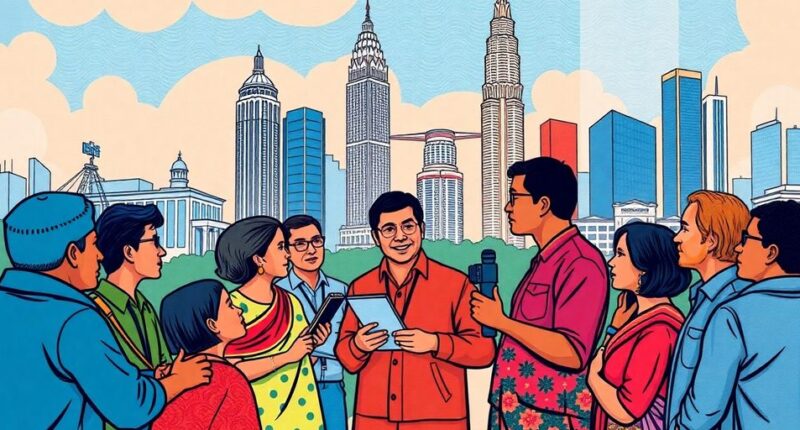In recent weeks, Malaysia has witnessed significant unrest regarding proposed amendments to the Communications and Multimedia Act (CMA) and the Printing Presses and Publications Act (PPPA). These amendments have raised alarms among journalists, civil society organizations, and human rights advocates, who argue that they threaten media independence and freedom of expression in the country.
Key Takeaways
- Proposed amendments to the CMA and PPPA are seen as repressive and a threat to media freedom.
- The Madani government faces criticism for not engaging in meaningful consultations with stakeholders.
- Protests have erupted, with journalists and advocates calling for the withdrawal of the amendments.
Proposed Amendments Under Scrutiny
The proposed amendments to the CMA, which were introduced in Parliament on December 2, 2024, have been met with widespread condemnation. Critics argue that these changes violate fundamental rights to freedom of expression and privacy, as enshrined in both international human rights law and Malaysia’s Federal Constitution.
Key concerns include:
- Expanded Powers of the Malaysian Communication and Multimedia Commission (MCMC): The amendments would grant the MCMC and the communication minister unprecedented powers to control and censor information without adequate oversight.
- Increased Punitive Measures: The amendments propose significantly harsher penalties for violations, including fines and imprisonment, raising concerns about their disproportionate nature.
- Vague Provisions: Critics highlight that the language used in the amendments is overly broad and vague, allowing for arbitrary interpretation and potential abuse.
Protests and Public Outcry
On December 4, journalists and media workers organized a protest outside the Malaysian Parliament, demanding the government withdraw the proposed amendments. The demonstration was supported by various civil society organizations, emphasizing the need for a transparent consultation process with stakeholders.
The protestors submitted a letter to the government, urging it to uphold its commitments to media independence and reform. They called for an end to increased control over the media and the establishment of an independent Malaysian Media Council to foster accountability within the industry.
The Role of Civil Society
Civil society organizations, including the International Federation of Journalists (IFJ) and the Centre for Independent Journalism (CIJ), have been vocal in their opposition to the amendments. They argue that the proposed changes would further undermine press freedom and encourage self-censorship among journalists.
The IFJ has called for the government to engage in comprehensive consultations with media representatives before implementing any changes to existing laws. They stress that the right to freedom of expression is a cornerstone of democracy and must be protected.
Conclusion
The proposed amendments to the CMA and PPPA represent a critical juncture for media freedom in Malaysia. As protests continue and public sentiment grows against these changes, the Madani government faces mounting pressure to reconsider its approach. The outcome of this situation will have lasting implications for the future of journalism and free expression in the country.
Sources
- Malaysia: Halt the repressive amendments to the Communications and Multimedia Act – ARTICLE 19, ARTICLE 19 – Defending freedom of expression and information..
- Malaysia: Proposed PPPA amendments threaten media independence – IFJ, International Federation of Journalists – IFJ.
